I particularly appreciate this innovative yet simplistic approach to ensure the magazine makes for a valuable read and informs the readers on best practice sharing as well. Asian Hospital & Healthcare Management is fulfilling an important role in the Asian healthcare industry and we would recommend the publication to others that seek to communicate with industry professionals.

Executive Director, Apollo Hospitals Group
1.Healthcare organizations are under constant pressure to improve the quality of care! Good software’s, instant care, patient safety and patient management. What is your perception in this regard?
It is well known that there is a huge gap between the actual need for healthcare and the available healthcare resources. It is prudent that we maximize the use technology to bridge the gap. The efficient use of technology will only help ensure that the precious healthcare professionals maximize their time with patients while the overall healthcare workflow can be augmented by effective utilization of Hospital Information Systems.
2. Can you enlighten us about Apollo Hospitals Group and what it does?
When Apollo Hospitals started operations in 1983, it marked the entry of corporatized healthcare in India and the very business model became the innovation that Indian healthcare was desperately in need of. With patient centricity at the core, Apollo Hospitals has emerged as Asia’s foremost integrated healthcare organization with a strong presence across pivotal touch points in the healthcare delivery chain which includes hospitals, family clinics, pharmacies, cutting edge research programs, global clinical trials, education, wellness, consulting, business process operations and Healthcare IT services.
3. What motivated you to join the organization? In your opinion what makes you happy being in Healthcare sector?
I was keen on medicine as a career but, observing my father at work, striving hard to get a corporate hospital model off the ground, I realized that working with my father would be lot more engaging.
The professional competence and caring nature of 65,000 members of the Apollo family inspires me. I am marveled by the way everyone contributes to the bigger cause and the dynamic nature of the organization. I feel truly blessed to be a member of the Apollo Hospitals family as it has given me an opportunity to make significant a difference in the lives of millions. Apollo Hospitals revolutionized the healthcare landscape in India and touched the lives of over 33 million people who came from 120 countries.
4. What do you think about “Efficient use of technology as a critical element in bringing cost of healthcare at optimized levels”?
I strongly feel this is the need of the hour. By using advanced technology, we will be able to optimize the diagnosis to treatment time. This means that we can get the patient on a faster course towards effective treatment. This in turn will reduce costs of diagnostics and hospital stay. As I mentioned before, this also helps in maximization of healthcare resources thus reducing the overall overhead costs.
5. Share your thoughts on the following statements
- • Mature change management driving process.
- • A process workflow cycle that imbibes six sigma and lean principle of healthcare.
- • A culture of training and knowledge management that fosters a complete learning experience that brings back accountability at every role.
- • Efficient management of different schools of thoughts and still forging efficiency through technology.
Healthcare is a profession in practice since the evolution of mankind. It is only natural that this creates practice cultures that become habits. As we mature in our healthcare delivery models and as we are certain with the use of technology certain habits and processes need constant revision. Managing change is something that has to be a part of our organizational process DNA. We must acknowledge that the most difficult part of managing change is the human behavioral element and the sense of possessiveness that one gets due to the comfort of acquaintance and length duration of practicing the same. It is hence absolutely essential that the change management process be inclusive with a rationale of transition from the existing process to a new process. This enables everyone to see reason and accept the change as advancement as opposed to a critique of the existing system.
As it relates to six sigma and different schools of thoughts forging efficiency through technology; Its imperative that the healthcare industry learn the best practices of other industries. Lean and Six sigma have created a huge transformation in the manufacturing sector and the benefits are well known. Healthcare should be no different. We should adopt lean and six sigma into our work process to create effectiveness and efficiency. At Apollo we take this very seriously. I personally oversee the initiatives. All our senior executives have been inculcated into this and the change management, transformation and execution of these projects are giving us great benefit interms of reducing cost, increasing efficient and above all creating delight for our patients. This has really helped us partner effectively with our doctors , our employees and our patients to improve the overall effectiveness healthcare delivery and reducing healthcare costs.
6. What makes India such an attractive destination for Healthcare companies?
With India aspiring to become a global economic powerhouse, there is an increasing focus on improving the health of the nation. Soon Health too, will become a Fundamental Right in the country.
The disease burden is on the rise and lifestyle diseases are taking a huge toll. Despite higher disease burden, India has deficit of health infrastructure evident by number of hospital beds per thousand populations (0.9 beds per 1000 population) which is well below the World Health Organization norms.
Even to take this bed density to 2 beds per 1000 population by year 2025, India would need 1.7 million additional hospital beds and 0.7 million clinicians, requiring an investment of around US$86 billion. Given this enormous opportunity, the sector is witnessing significant investments by large private equity firms, and healthcare is likely to grow at 1.5 to 2 times the GDP growth rate over next decade. This growth in provider care is expected to fuel investment in medical equipment and diagnostic industry.
The key drivers encouraging a transformation of healthcare delivery in India is a growing and discerning middle class, the global patient population who are willing to repose their trust in Indian clinicians and moreover, a pronounced political will to include healthcare in the priority agenda.
The Government of India plans to cover 50% of the country’s population with health insurance by 2020, which shall significantly improve the affordability of healthcare services which currently are dominated by out of pocket expenditure.
In addition, there are tax incentives to private players to establish hospitals in Tier II and Tier III cities. Government also permits 100% FDI for health and medical services under the automatic route. Furthermore, the private and public sectors across certain States have launched various initiatives to attract PPP investments into the sector.
India has a large underserved population and mHealth is likely to play an important role in taking healthcare to remote and under-penetrated regions of the country and present an estimated opportunity of US$500 million over next 5 years.
India has one of the world’s fastest-growing pharmaceutical sectors and it is projected to double by 2016. There is political impetus to make India a leading destination for end-to-end drug discovery and innovation, which is garnering attention from pharmaceutical companies looking to escape cost pressure in mature economies.
7. With eHealth being the buzzword! What are the healthcare trends that may emerge in Asia particularly in the provision and access of good healthcare? Tell us something about your future endeavors, and new IT initiatives Apollo is coming up with?
We are really excited about eHealth in terms of the partnership it creates between the health system and the patients. We have always seen Apollo’s health delivery model as a circle of life from wellness to cure; from prevention to rehabilitation.
We are proud to have our PHR – Apollo Prism touch 1.5 million patient records. We treat our PHR as the digital health diary for the patient, in addition to populating the PHR with hospital medical records, alerts and reminders on services, web based appointment scheduling with doctors, portal to initiate a tele medicine based eVisit. In addition, we use our PHR to foster disease management. In this context, our diabetes management program SUGAR is part of the PHR e-health disease management. We have rolled out mHealth apps that work in tandem with our PHR. We will soon be rolling out our eHealth initives linked to remote patient care monitoring. I am excited about this and will elaborate more soon after my team finalizes the plan.
8. Asian Hospitals and Healthcare Management’ a leading Healthcare title in print and digital versions reaches directly to key industry professionals & the decision makers in the Healthcare industry. The magazine addresses the most significant developments, trends and features opinions and analyses by respected leaders from the Hospitals & Healthcare industry. What do you think about our magazine who is into promoting & branding healthcare industry today on such a wide scale?
Asian Hospital & Healthcare Management has initiated a holistic platform in Asia with the breadth of coverage it offers about trends and best practices to healthcare industry professionals in the print and digital version. It also facilitates an interesting forum for an exchange of ideas and opinions through its interviews with industry leaders. At every stage of the process Asian Hospital & Healthcare Management reinstates a crisp communication to convey the latest trends, insights and breakthrough in the healthcare industry and helps in keeping the momentum alive.
I particularly appreciate this innovative yet simplistic approach to ensure the magazine makes for a valuable read and informs the readers on best practice sharing as well. Asian Hospital & Healthcare Management is fulfilling an important role in the Asian healthcare industry and we would recommend the publication to others that seek to communicate with industry professionals.




